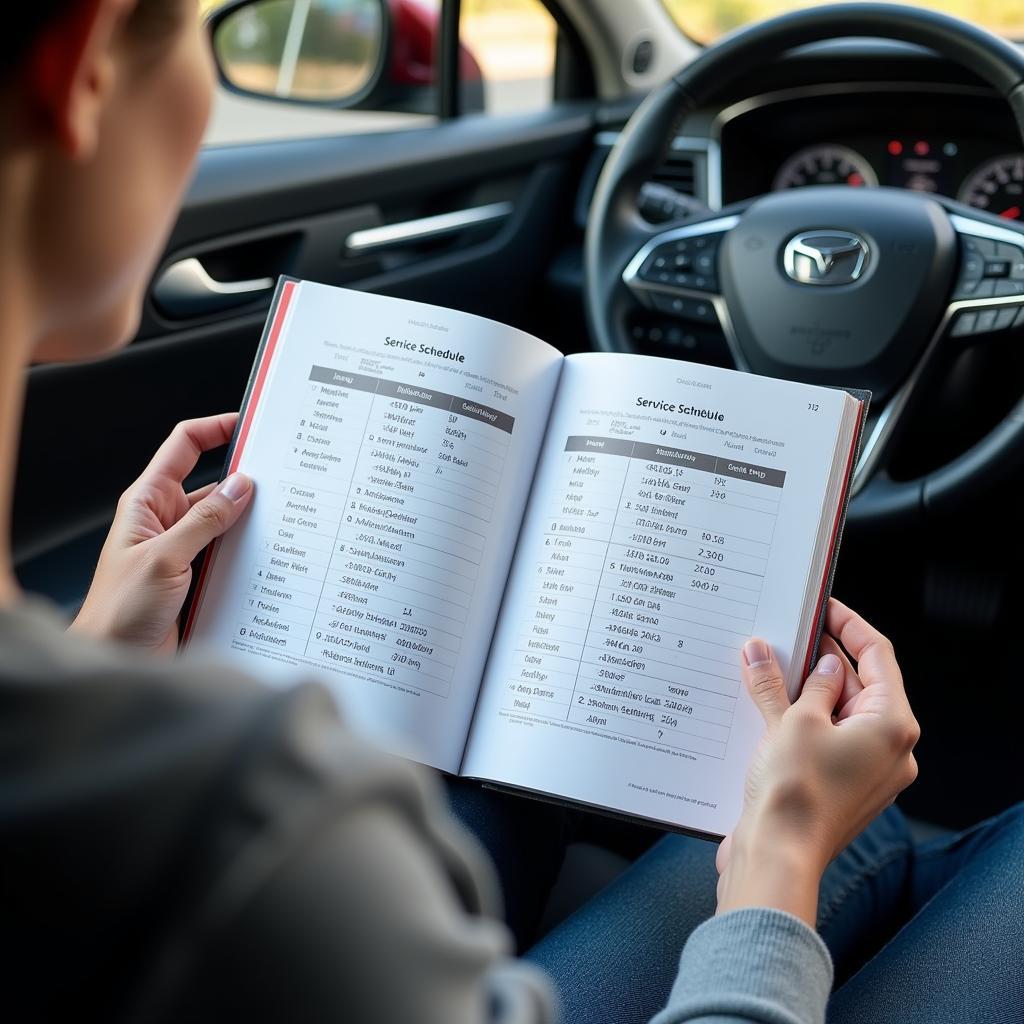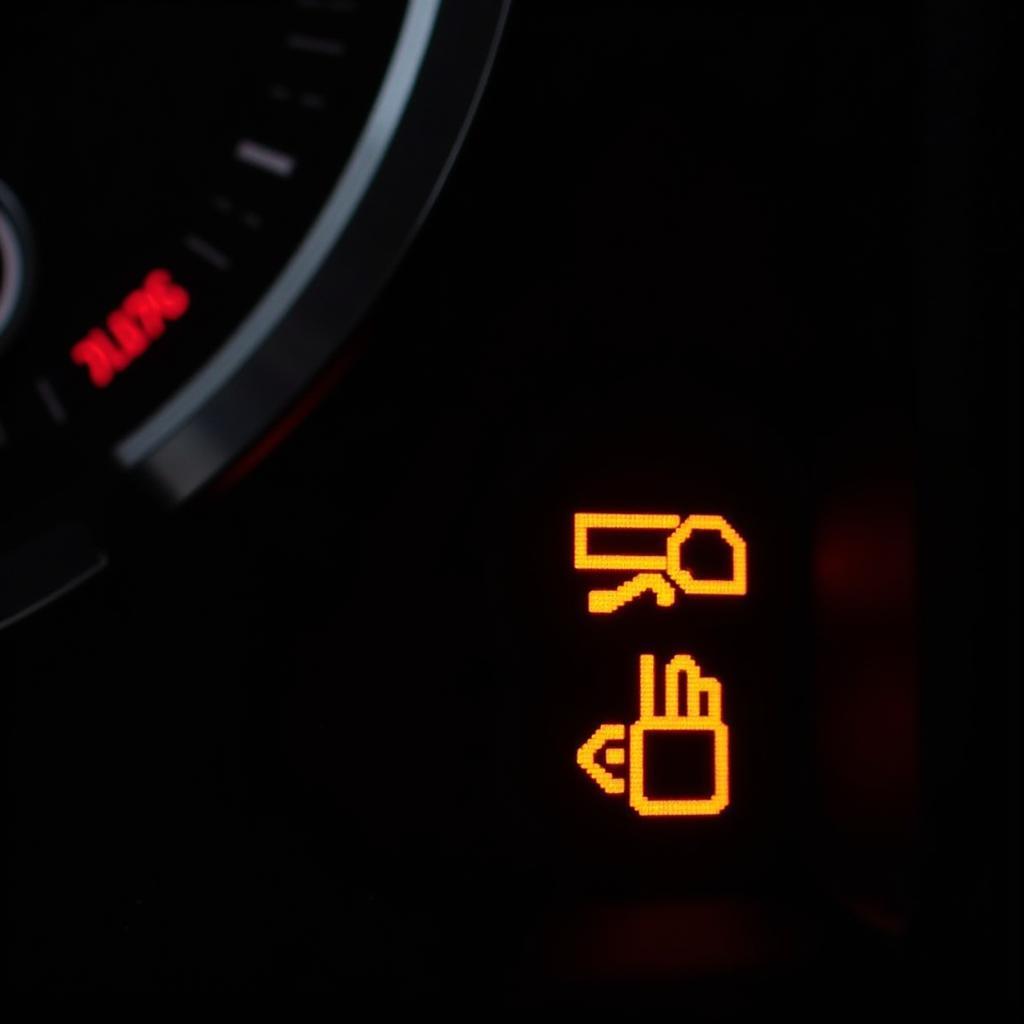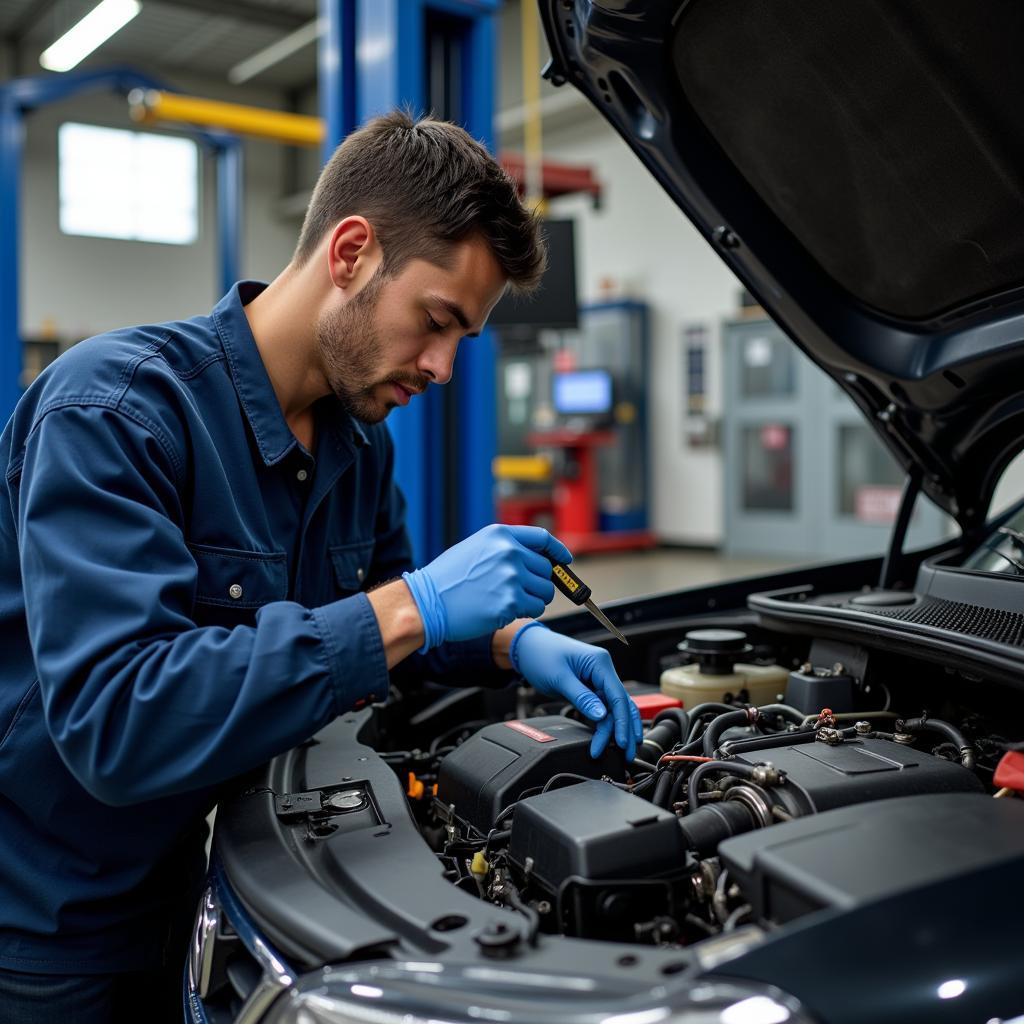When Should My Car Get Serviced?
Knowing when your car needs a service can feel like a guessing game. Ignoring it can lead to costly repairs down the line, while servicing too often can feel like throwing money away. So, When Should My Car Get Serviced? This guide will equip you with the knowledge to make informed decisions about your car’s maintenance schedule, keeping it running smoothly and saving you money in the long run.
Understanding Your Car’s Service Schedule
Your car’s manufacturer provides a recommended service schedule in your owner’s manual. This schedule outlines specific maintenance tasks based on mileage intervals or time elapsed, sometimes both. It’s the best starting point for determining when your car needs attention. These schedules are designed to be preventative, addressing potential issues before they become major problems. Don’t have your manual handy? You can often find the schedule online through your car manufacturer’s website.
 Checking the car service schedule in the owner's manual.
Checking the car service schedule in the owner's manual.
Decoding the Service Intervals
Service intervals are typically expressed in miles or months, such as “every 7,500 miles or 6 months.” This means you should service your car whichever comes first. For example, if you drive a lot, you might reach 7,500 miles before 6 months have passed. Conversely, if you’re a light driver, you’ll likely hit the 6-month mark before reaching the mileage interval. Understanding this distinction is key to following the recommended service schedule accurately. Want to learn more about what car servicing entails? Check out what does it mean to get car serviced.
Beyond the Manual: Factors Influencing Service Frequency
While the manufacturer’s schedule is a solid foundation, various factors can influence how often your car actually needs servicing.
Driving Conditions
Do you primarily drive on highways or navigate city streets daily? Stop-and-go city driving puts more strain on your vehicle’s components, potentially requiring more frequent servicing. Similarly, driving in extreme temperatures, whether hot or cold, can impact your car’s fluids and battery, necessitating earlier checks. If you regularly tow heavy loads or drive off-road, these activities also contribute to increased wear and tear.
Warning Signs: Listening to Your Car
Your car often communicates its needs through various warning signs. Pay attention to unusual noises, like squeaking brakes or a knocking engine. Changes in performance, such as decreased fuel efficiency or difficulty starting, can also signal underlying problems. when to have your car serviced provides more details on these crucial signs. Ignoring these warnings can lead to more significant and expensive repairs later on.
 Illuminated warning lights on a car's dashboard.
Illuminated warning lights on a car's dashboard.
Modern Technology and Diagnostic Tools
Modern cars are equipped with sophisticated diagnostic systems that can pinpoint potential issues early. Regularly scanning your car’s computer for diagnostic trouble codes (DTCs) can identify problems before they become noticeable. This proactive approach can save you from unexpected breakdowns and expensive repairs. If your car displays a message like “service brake assist”, understanding its meaning is crucial. why does my car say service brake assist offers valuable insights into this specific warning.
Types of Car Services: From Basic to Comprehensive
Car services range from basic oil changes and tire rotations to more comprehensive inspections and repairs.
Routine Maintenance
Routine maintenance typically involves tasks like oil changes, filter replacements, tire rotations, and brake inspections. These services are crucial for keeping your car running smoothly and preventing premature wear and tear.
Interim Service
Interim services are more in-depth and usually performed every 12,000 miles or annually. They include checking vital fluids, inspecting belts and hoses, and examining the exhaust system.
Full Service
A full service is the most comprehensive type of car service. It covers all aspects of your vehicle, from the engine and transmission to the suspension and electrical systems. Full services are typically recommended every 24,000 miles or every two years. Considering servicing your car every six months? is it necessary to service car every 6 months explores this question in detail.
 A mechanic conducting a comprehensive car service.
A mechanic conducting a comprehensive car service.
Conclusion
Understanding when your car needs servicing is essential for its longevity and your peace of mind. While the manufacturer’s schedule provides a valuable guideline, factors like driving conditions and warning signs play a significant role. Regular checks, combined with attention to your car’s signals, will ensure you address potential problems proactively, saving you money and keeping your vehicle running reliably. Remember, when should my car get serviced depends on a combination of factors, but proactive maintenance is always the best approach.
FAQ
- What if I don’t have my car’s owner’s manual?
- Can I perform car servicing myself?
- How much does a car service typically cost?
- What happens if I skip a scheduled service?
- How do I choose a reputable car service center?
- What is the difference between a minor and major service?
- Is it always necessary to follow the manufacturer’s service schedule exactly?
If you see “service stabilitrak” on your dashboard, it’s important to understand what it means. Check out what does it mean when your car say service stabilitrak for more information.
Need assistance? Contact us via WhatsApp: +1(641)206-8880, Email: [email protected] or visit us at 456 Oak Avenue, Miami, FL 33101, USA. We have a 24/7 customer service team.

